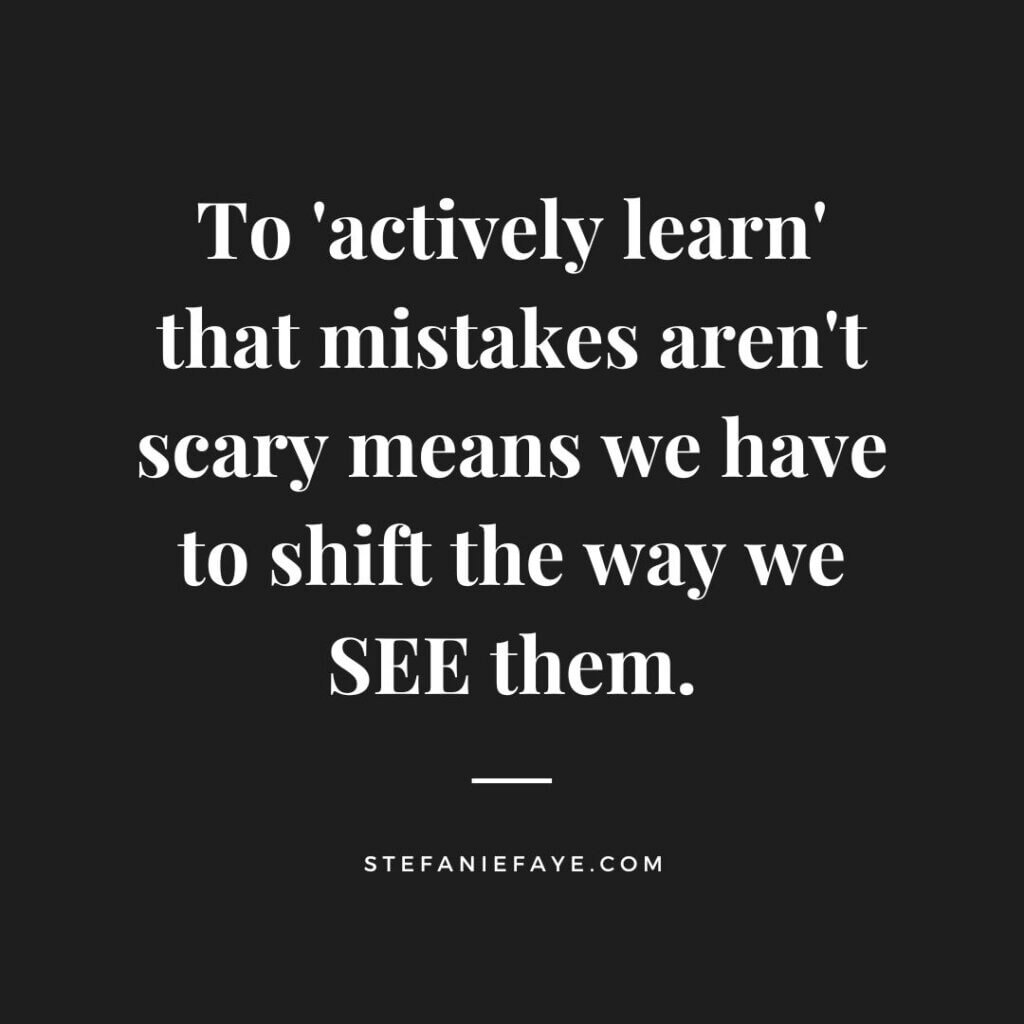We aren't born afraid of failure.
We learn to become afraid of it.
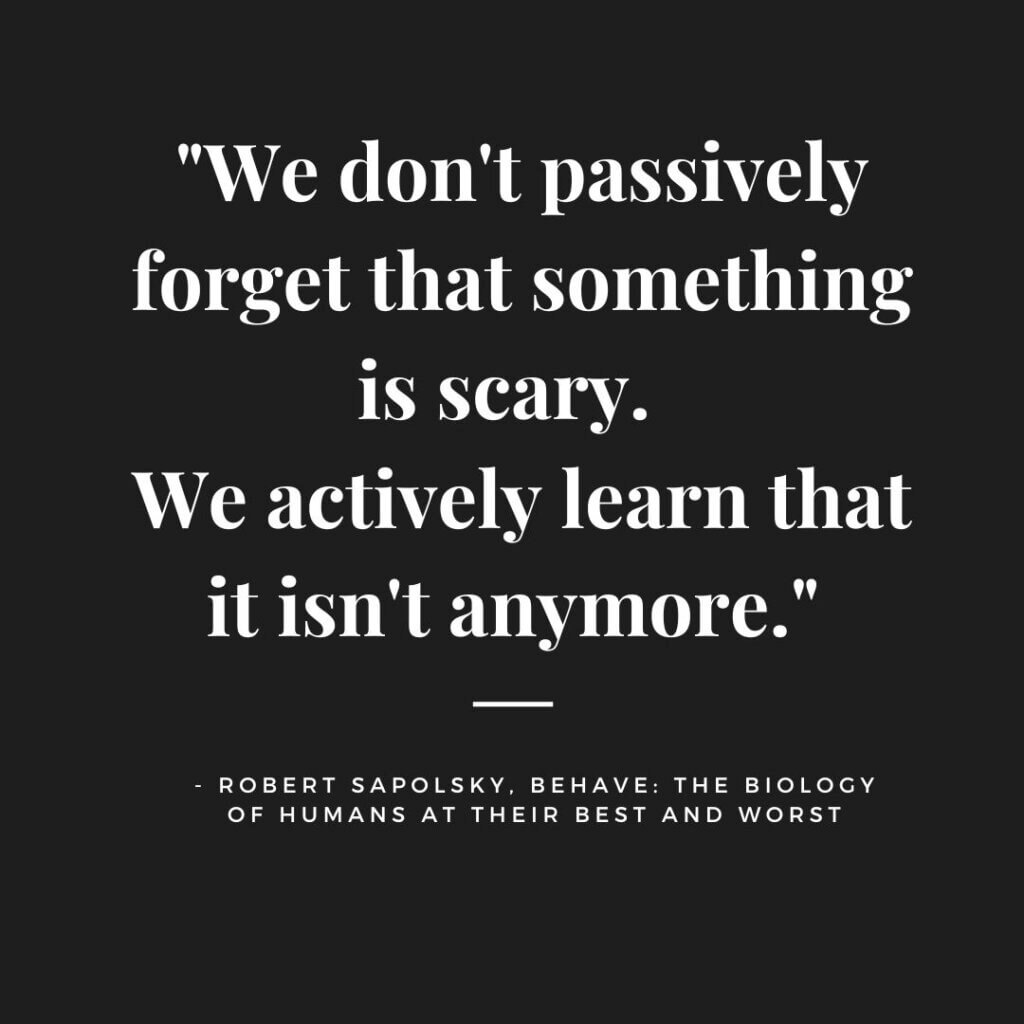
"We don't passively forget that something is scary.
We actively learn that it isn't anymore."
- Stanford Professor Robert Sapolsky, in his book Behave
Learning inherently requires mistakes.
If humans were born afraid to make them,
we, as a species, would literally never evolve.
Why does this matter?
Because, according to IDEO's innovation experts David Kelley and Tom Kelley,
"fear of failure [...] is the single biggest obstacle
people face to creative success".
Years ago, I spoke about the 'neurobiology of innovation' with a panel of neuroscience & creativity researchers including:
Manish Saggar- Brain Dynamics Lab at Stanford University
Sergio Agnoli - University of Bologna's Marconi Institute for Creativity
Caroline Szymanski -Max Planck Institute for Human Development
Julia Von Thienen - Hasso-Plattner Institute for Design Thinking, Berlin
We were part of the D.confestival for Design Thinking in Berlin - which included talks from global innovation experts such as Google, Siemens, Bosch And SAP.
A key takeaway from this community of thought leaders?
The ability to innovate is one of the most important issues of our time.
It's the only way we'll evolve beyond our outdated systems, structures and problems.
A big factor that slows down innovation is FEAR OF MISTAKES.
We've been conditioned to believe that mistakes are bad...
We must actively learn that they're not.
To 'actively learn' that mistakes aren't scary means we have to shift the way we SEE them.
When we see something as helpful instead of harmful, we are more likely to approach it.
"The difference between greatness and mediocrity
is often how an individual views a mistake."
- Nelson Boswell
There are three keys to seeing mistakes differently.
Key #1: Mistakes lead to electrochemical activity in the brain called the ERN response.
(ERN = error-related negativity feedback... see this paper from Stanford)
The first key to actively learn that mistakes aren't scary is to understand what a mistake actually is -
NOT the meaning that you have learned to make about it, but what it is actually is, on a bio-mechanical level.
The ERN response is critical for our survival and for updating how we do things. Without it, we would not be able to learn or change when things are not going well, or we are doing things that move us away from our goals.
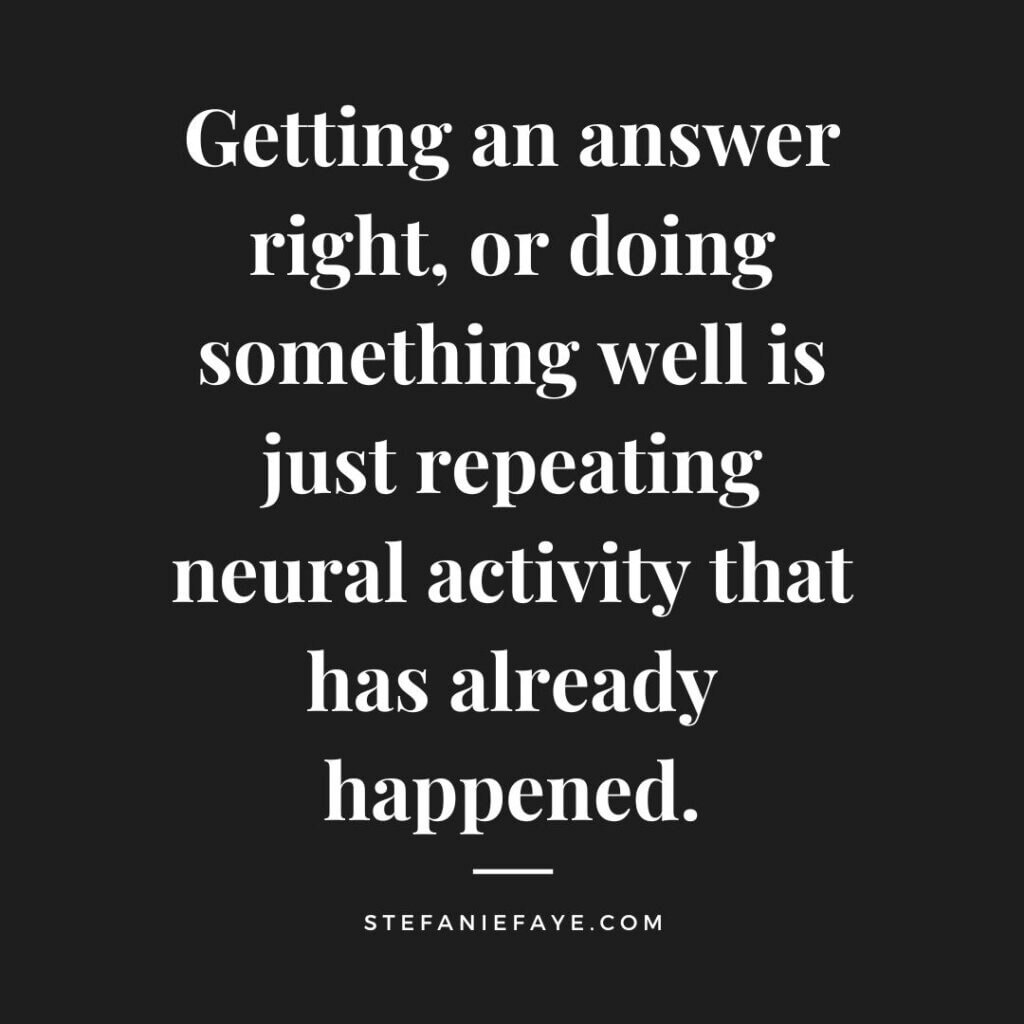
This special, growth-related brain activity only happens when we make a mistake.
It does NOT happen when we get an answer right.
In fact, we don't even realize we've made a mistake when this ERN activity happens (it happens before we become conscious of the error).
When we understand how the brain learns, this totally makes sense...
If we're answering a question correctly, It means that we have already activated the neural circuitry needed to perform that task.
Let me repeat that…
Getting an answer right, or doing something well is just repeating neural activity that has already happened.
Therefore...
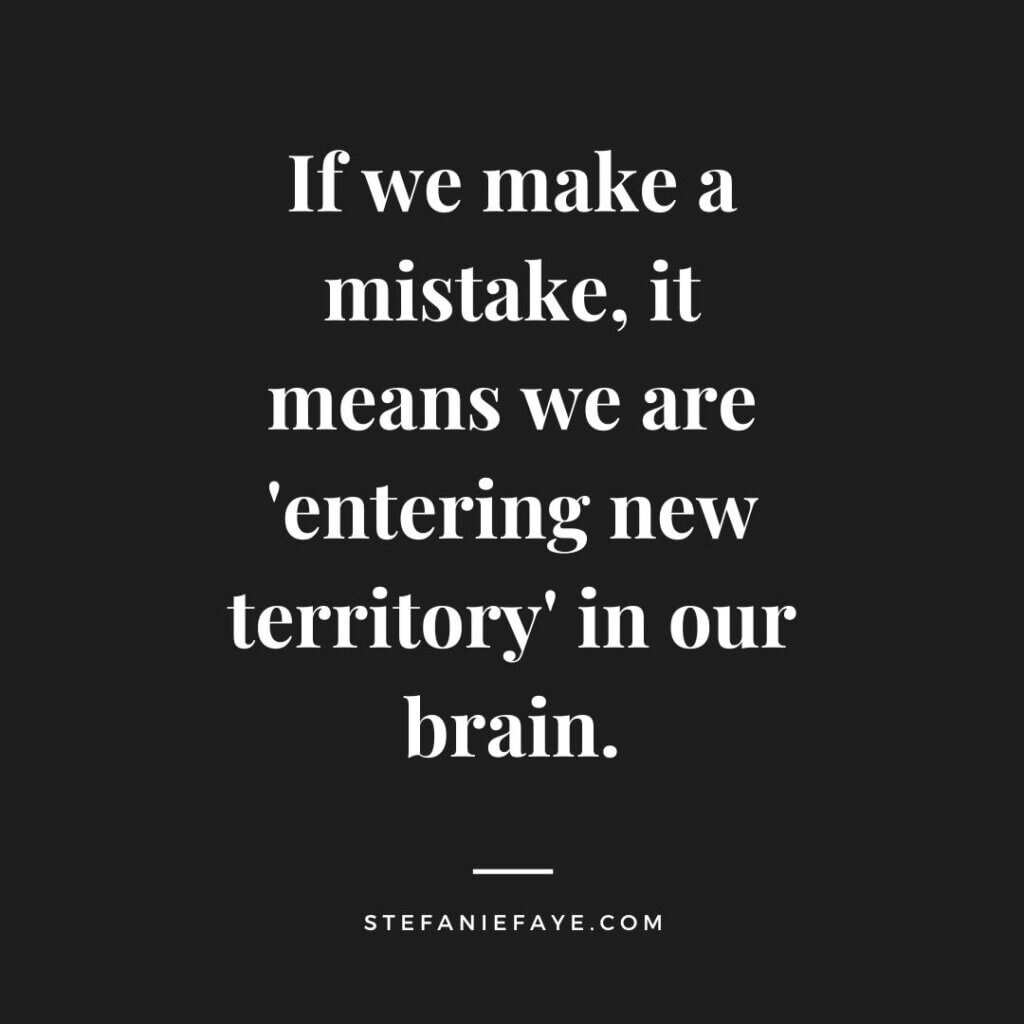
Key # 2: If we make a mistake it MUST mean we are 'entering new territory' in our brain.
It means we're activating neural circuitry in a way we have not done before.
- A mistake means new brain activity has occurred.
- New activity in the brain is the spark of growth of new networks.
- New networks leads to new thoughts, ideas and behaviors.
So, the 're-frame' or 'mindset shift' is:
- a) Mistakes literally (neurobiologically*) grow your brain.
b) A mistake means you are a performer 'in the arena'.
Not a bystander.
Not a critic.
Not doing something you already know how to do.
You are actually, actively, sparking new activity that is literally growing your brain.
Which THEREFORE means that c)...
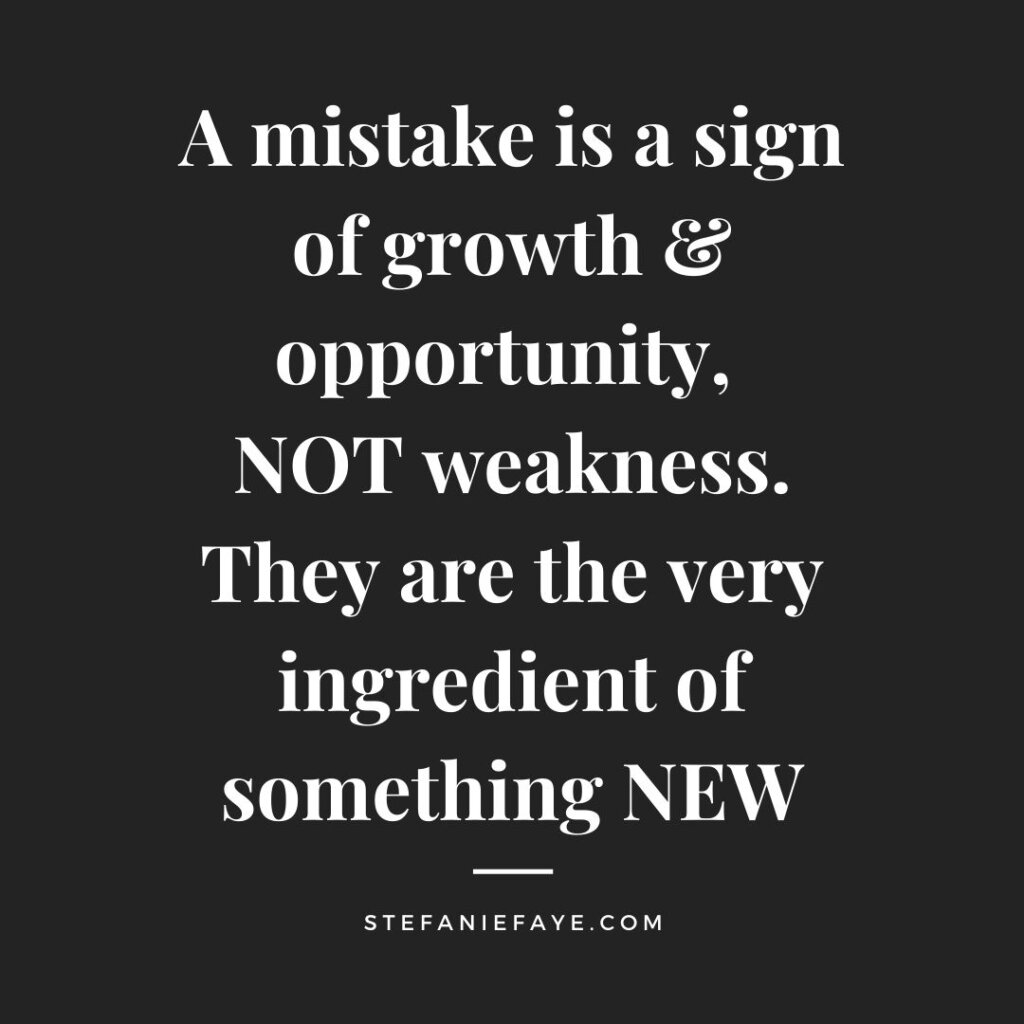
Key #3: A mistake is a sign of growth and opportunity, NOT weakness
In your own life, in your organization, in your classroom...
whatever you collectively choose to reward, to praise, to notice, becomes a group-mindset.
When we choose to value things like mistakes, effort, and even being someone who is 'outside of the herd', we create 'psychological safety' for that group to do those things they are normally afraid of.
In fact, According to studies on psychological safety, a key factor of a team’s sense of safety comes from experiences where “appreciation and interest are expressed in response to discussion of their own and others’ mistakes” (Edmonson, 1999).
The safer we feel about something, the more likely we are to approach it.
The more likely we are to approach making mistakes, the more likely we we are to try something new.
The more likely we are to try something new, the more likely we are to create something new.
The Takeaway message here is:
Re-frame mistakes by acknowledging what they actually are, NOT the story that has been attached to it and passed down from previous generations.
Mistakes literally, neurologically, grow your brain.
According to the laws of nature,
mistakes are
inherently and indisputably related to
growth and evolution,
not weakness or inferiority.
They are the opposite of repetition. They are the very ingredient of anything NEW.
the more deeply you get this, the more authentic you will be when you tell people (including yourself) to try something new even if you might fail.
"If you've never failed,
you've never tried anything new."
- Albert Einstein
References:
Edmondson, A. (1999). Psychological Safety and Learning Behavior in Work Teams. Administrative Science Quarterly, 44(2), 350-383. https://doi.org/10.2307/2666999
ps - if you want to join forces with me to DOMINATE your field of expertise and attract incredible new opportunities for your coaching, teaching and leadership legacy… I'd love to meet you… LEARN MORE HERE
